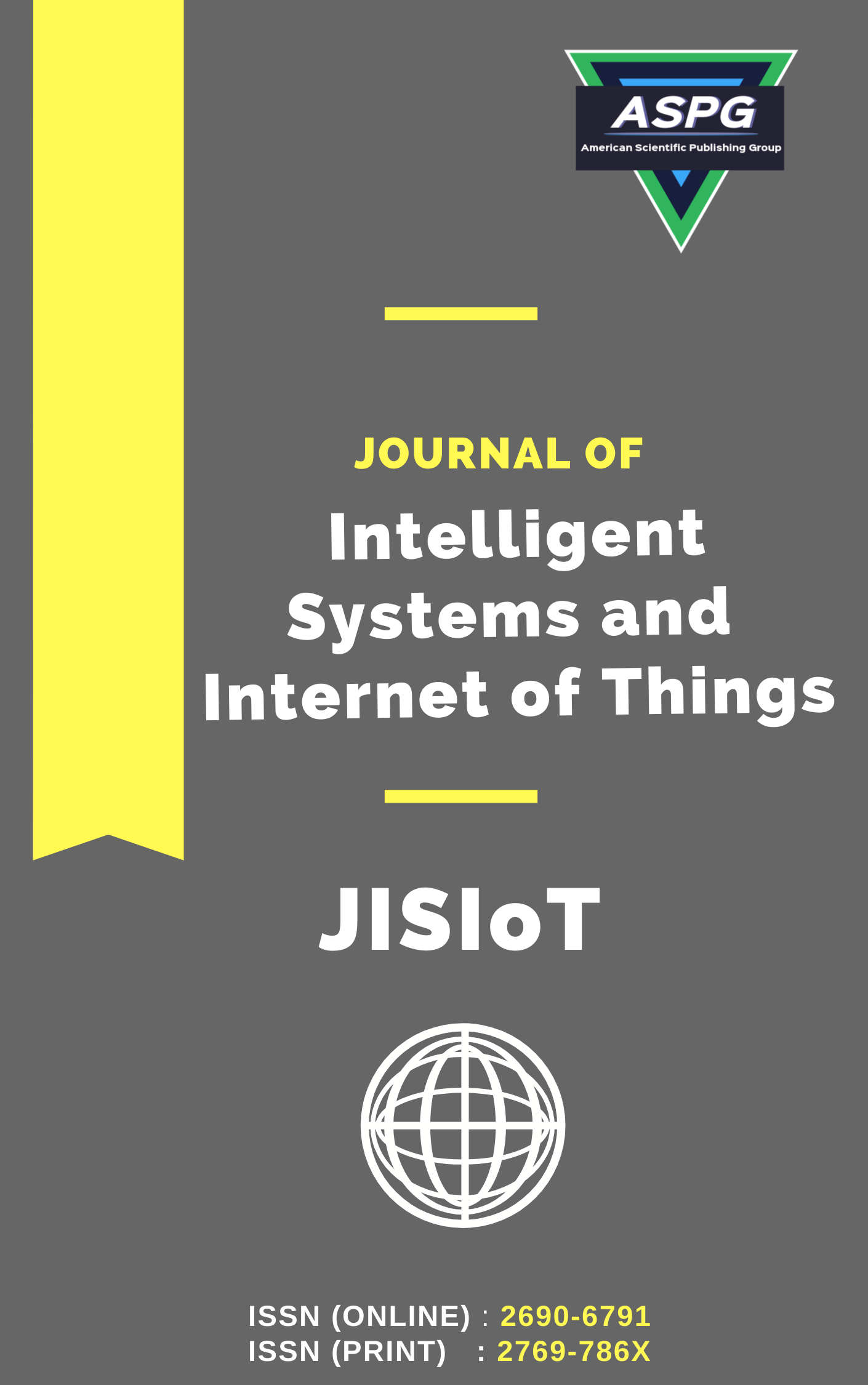

Volume 1 , Issue 1 , PP: 5-12, 2020 | Cite this article as | XML | Html | PDF | Full Length Article
Hatem Abdul-Kader 1 , Mustafa.Abd-El salam 2 , Mona Mohamed 3
The state of the weather became a point of attraction for researchers in recent days. It control in many fields as agriculture, the country determines the types of crops depend on state of the atmosphere. It is therefore important to know the weather in the coming days to take precautions. Forecasting the weather in future especially rainfall won the attention of many researchers, to prevent flooding and other risks arising from rainfall. This Paper presents a vigorous hybrid technique was applied to forecast rainfall by combining Particle Swarm Optimization (PSO) and Multi-Layer Perceptron (MLP) which is popular kind used in Feed Forward Neural Network (FFNN). The purpose of using PSO with MLP is not just to forecast the rainfall but, to improve the performance of the network; this was proved by comparison with various Back Propagation (BP) an algorithm such as Levenberg-Marquardt (LM) through results of Root Mean Square Error (RMSE). RMSE for MLP based PSO is 0.14 while RMSE for MLP based LM is 0.18.
Weather Forecasting, Feed Forward Neural Network , Levenberg-Marquardt , Multi-Layer Perceptron , Particle Swarm Optimization
[1] Pooja Malik, Saranjeet Singh, and Binni Arora, “An Effective Weather Forecasting Using Neural Network ,” IJEERT, Vol. 2, PP 209-212, May 2014.
[2] Sanjay D. Sawaitul, Wagh, and P. N. Chatur, “Classification and Prediction of Future Weather by using Back Propagation Algorithm-An Approach,” IJETAE, Vol. 2, PP 110-113, January 2012. Available on: www.ijetae.com.
[3] Rahul Moriwal, and Shiv Kumar Dubey, “Predicting Weather Using Data Mining Techniques,” IJAEGT, Vol. 3, pp. 51-59, February 2012.
[4] Ch. Jyosthna Devi, B. Syam Prasad Reddy, K.Vagdhan Kumar, B. Musala Reddy, and N. Raja, Nayak, “ANN Approach for Weather Prediction using Back Propagation,”IJETT, Vol. 3, pp. 19- 23. 2012.
[5] Folorunsho Olaiya, and Adesesan Barnabas Adeyemo, “Application of Data Mining Techniques in Weather Prediction and Climate Change Studies,” Ijieeb, Vol.1, pp. 51-59, February 2012.
[6] Sangari.R.S, and M.Balamurugan,” A SURVEY ON RAINFALL PREDICTION USING DATAMINING, "International Journal of Computer Science and Mobile Applications", Vol.2, PP. 84-88, February 2014.
[7] Issam Odeh, “Temperature Prediction in Jordan using ANN,” IJCSIT, Vol. 7, PP. 378-383, 2016.
[8] Ankita Sharma, and Geeta Nijhawan," Rainfall Prediction Using Neural Network, IJCST, Vol. 3, PP. 65-69, May 2015. Available at: www.ijcstjournal.org.
[9] Mustapha BEN EL HOUARI, Omar ZEGAOUI, and Abdelaziz ABDALLAOUI," Prediction of air temperature using Multi-layer perceptrons with Levenberg-Marquardt training algorithm,” IRJET, Vol. 2, PP. 26-32, November 2015. Available at: www.irjet.net.
[10] Meera Narveka, Priyanca Fargose, and Debajyoti Mukhopadhyay, “Weather Forecasting Using ANN with Error Backpropagation Algorithm,”Springer Link, Proceedings of the International Conference on Data Engineering and Communication Technology, vol. 468, PP. 629-639, August 2016.
[11]Saduf,and Mohd Arif Wani," Comparative Study of Back Propagation Learning Algorithms for Neural Networks,” ijarcsse, Vol. 3, PP. 1151- 1156, December 2013. Available online at: www.ijarcsse.com.
[12] Ch. Jyosthna Devi, B. Syam Prasad Reddy, K.Vagdhan Kumar, B. Musala Reddy, and N. Raja, Nayak, “ANN Approach for Weather Prediction using Back Propagation,”IJETT, Vol. 3, pp. 19-23. 2012.
[13] Rahul Moriwal, and Shiv Kumar Dubey, “Predicting Weather Using Data Mining Techniques,” IJAEGT, Vol. 3, pp. 51-59, February 2012.
[14] Magdi Zakaria, Mabrouka AL-Shebany, Shahenda Sarhan, “Artificial Neural Network : A Brief Overview,” In International Journal of Engineering Research and Applications, Vol. 4, pp.07- 12, February 2014.
[15] Dian Palupi Rini, Siti Mariyam Shamsuddin, and Siti Sophiyati Yuhaniz, “ Particle Swarm Optimization: Technique, System and Challenges,” IJCA, vol. 14, pp. 1-9, January 2011.
[16] Riccardo Poli, James Kennedy, and Tim Blackwell, “Particle swarm optimization An overview,” Springer Science + Business Media, May 2007.
[17] Yuhui Shi, and Russell C. Eberhart, “Empirical Study of Particle Swarm Optimization,” IEEE, pp. 1945-1950, September 1999.
[18] Andrew R. Barron, ‘‘neural networks: A review Networks, from a statistical perspective,” Statistical Science Vol. 9, PP.33–35, Feb 1994. Published by: Institute of Mathematical Statistics.